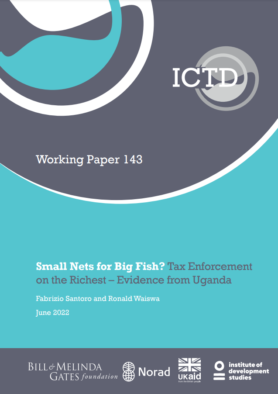Working Paper 143
Appropriately taxing the richest is a priority for every government, even more so in Africa, where higher revenue mobilisation is needed to fund growth. In Uganda, the revenue authority launched a specific unit to monitor the tax affairs of the richest individuals. Thanks to a close collaboration with the Uganda Revenue Authority (URA), we evaluate the impact of such policy on a range of tax filing and payment outcomes of targeted taxpayers, as gathered from a wealth of administrative data. We show that the policy only has been partially successful. While it increased the probability of filing, especially by politically relevant taxpayers, it produced a seemingly small response in which treated taxpayers would declare less on different margins, with the end result of not declaring more tax liabilities. On the tax payment side, only a small yet significant impact on tax collected is measured. In parallel, we show a strong compensating response across tax heads. Importantly, we also measure the spillover effect on companies associated with the richest taxpayers, again documenting complex compensating reactions. We inform future policymaking decisions, suggesting a higher simultaneous focus on different tax heads and a more holistic approach to monitoring both individual and corporate tax accounts.

